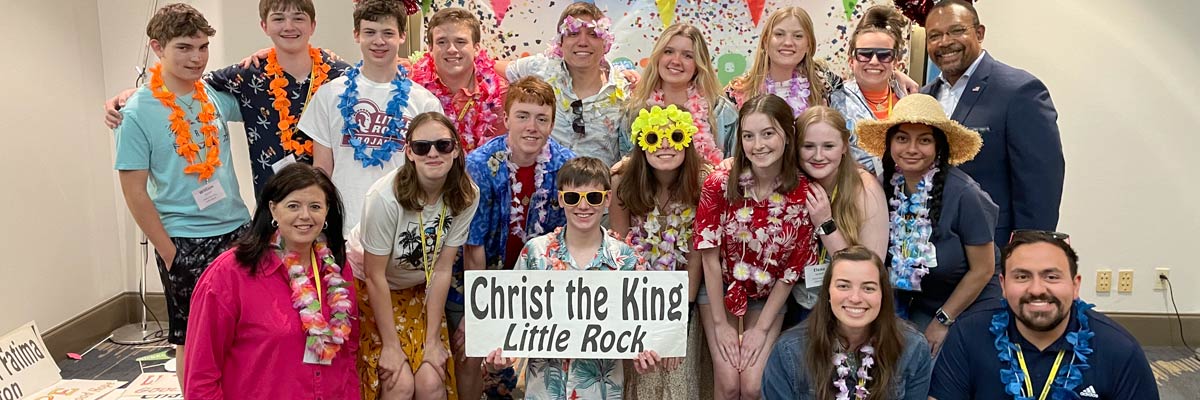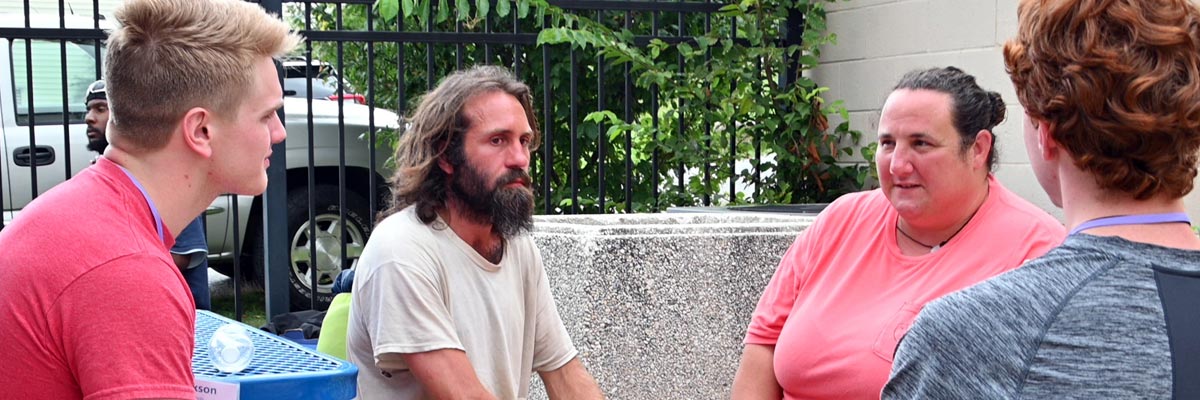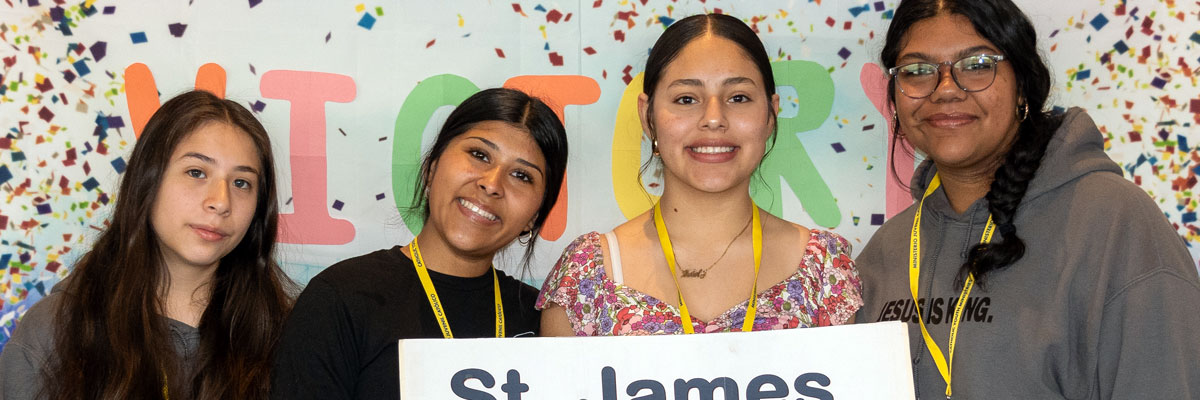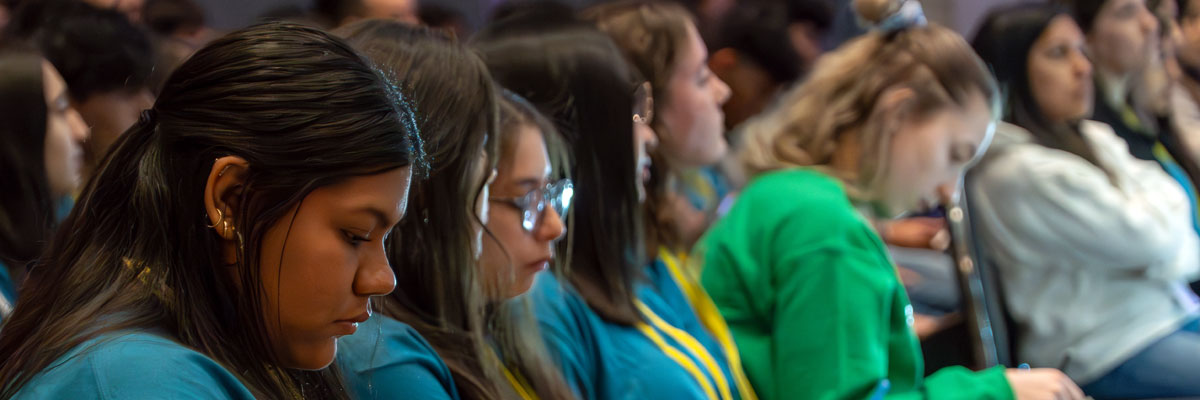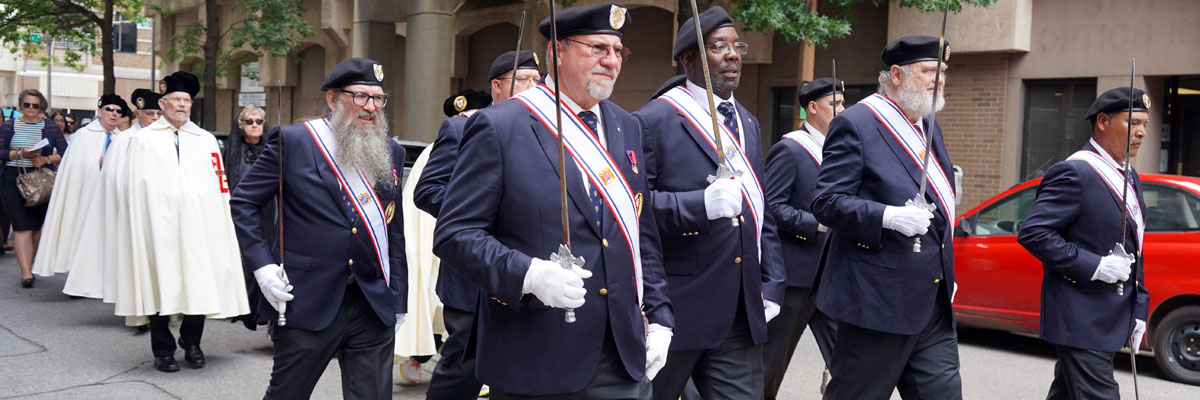Official Website of the
Catholic Diocese of Little Rock
30th Sunday in Ordinary Time, Year B, 2024
Published: October 27, 2024
Bishop Anthony B. Taylor preached the following homily at a Mass during the Diocesan Hispanic Charismatic Renewal Conference at the Fort Smith Convention Center on Sunday, Oct. 27, 2024.

Bishop Taylor
Many years ago I attended a conference on spiritual liberation and healing sponsored by the Archdiocese of Mexico City. I attended because I wanted to learn how to respond to people who experience disturbing things they think are caused by the devil. It was an excellent conference.
Spiritual liberation and healing are not — strictly speaking — exorcism because in exorcism the exorcist addresses the devil directly and orders him to leave, which is dangerous because we are weak and so requires the special permission of the bishop.
Spiritual liberation and healing, by contrast, address God not the devil and ask God to intervene to free the afflicted persons from whatever evil holds them bound. Jesus taught us to do this, for instance by praying the Our Father in which we ask God to "deliver us from evil."
In today's Gospel Jesus restores sight to a man named Bartimaeus. Notice that this healing was spiritual as well as physical because physical disabilities have spiritual consequences.
In today's Gospel Jesus restores sight to a man named Bartimaeus. Notice that this healing was spiritual as well as physical because physical disabilities have spiritual consequences. This is the psychosomatic dimension of illness. Sometimes the sick and disabled feel abandoned by God, hopeless and worthless, especially if the medical problems were caused by the patient's own sins and poor choices, and he now believes that God is punishing him.
Such depressing thoughts can hinder a person's recovery, so in these cases spiritual healing is needed as well.
As for Bartimaeus, we don't know what caused his blindness but its negative consequences were not just physical: he's a beggar, dependent on the charity of others, a burden on society. He was in the dark not just physically, but also spiritually. So when Jesus frees him from the physical darkness of his blindness, he also frees him from the consequent spiritual darkness of his miserable existence as a beggar.
Bartimaeus cried out in faith: "Jesus, Son of David, have pity on me," to which Jesus responds: "Your faith has saved you" ... and then the physical healing takes place. Our text says: "Immediately he received his sight and followed Jesus on the way." He was now neither blind nor a beggar. Jesus healed him spiritually and physically.
Every one of us here today has something wrong with us; it is simply the human condition. Many of us suffer from a chronic medical condition or a physical disability. Others struggle with psychological or emotional problems. There are alcoholics in our community and people who abuse drugs.
We have violent men, young people who are in gangs and families that suffer domestic violence. We have lots of people living together outside of marriage, many of whom are not even married civilly. There are others who are married but very unhappy. Every one of us has bad things, areas of darkness in our lives.
We are sinners, we make poor choices and we need God to intervene to heal us, forgive us and set us free from the power of these evils. And in today's Gospel we see that God sent Jesus to set Bartimaeus free both physically and spiritually.
Now he was neither blind nor a beggar. He was now following Jesus on the way. And Jesus can set you free too. Cry out in faith like Bartimaeus did: "Jesus, Son of David, have pity on me" and Jesus will respond to you as well — to heal you, forgive you and set you free.


